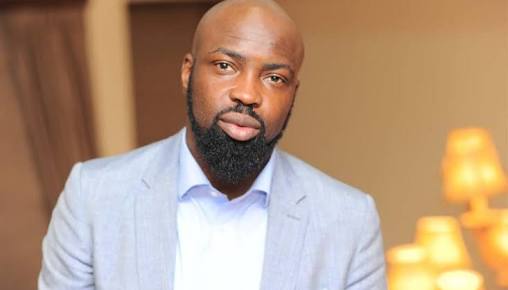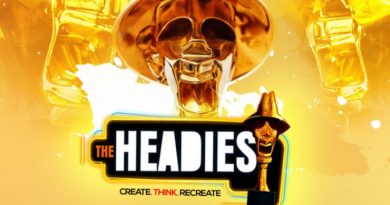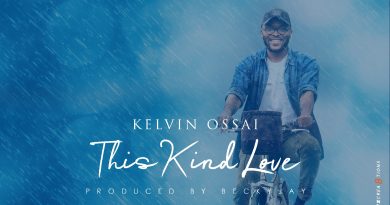Audi Maikori “It’s hard to say my father didn’t influence my career choice”
On the show two weeks ago, Audu Maikori said: It’s hard to say my father didn’t influence my career choice. Seeing him in the black resplendent gown and wig obviously had some impact, but he was very liberal about our career choices, his words were, “I don’t care what you do, just be the best in what you do. There’s no doubt that growing around Law books influenced my choice of career. I’ve had a very interesting career in Law, I started practice in 2001.The very first week I was called to Bar, I’d started legal practice. Within two weeks of being called to Bar, I got my first brief as a private practitioner. I worked with the Chambers of Afe Babalola (SAN) for about three and a half years. It was a great experience; we did a lot of litigation, commercial arbitration matters and constitutional matters from the lower court all the way to the Supreme Court.
Three years after that, I went to work in Leasing Company of Nigeria, a subsidiary of the Bank of Industry as a Legal Adviser for two years. I started Chocolate City around that time. In 2005, I got an opportunity to be Company Secretary/Legal Adviser for Abuja Marketing Management, which is owned by Abuja Investment Company. In that position, I was the Legal Adviser/Company Secretary, head of Administration, head of registry and a board member. I was there for about seven months and was promoted twice in that period. Just about that time, I got an opportunity to work with CPCS Transcom, a Canadian infrastructure advisory firm that did everything from port to railway, etc. In that capacity, Senior Legal Consultant, I worked on the privatization of Nigeria Ports Authority, Nigeria railway concession, the Abuja Mass Transit System, the Lagos Rail Mass Transit project and the privatization of the Sierra Leonean Port. The last assignment I handled before I left was the privatization of the Power Generating Company, PHCN. I resigned after two and half years to focus on Building Chocolate City full time.
Within the first year of NYSC, my business partner, Paul Okeugo and I started the Guild of Artists Report, which was basically like a literary society where people come in and recite books or poetry. We used to have a lot intellectual discourses that brought us into close interaction with the creative sector, which we found so broad but without outlets. We began to work with a lot of agencies like the British Council, Cultural centre, Nigerian Arts and Culture and Tourism. We tried to develop that sector and in that period, we discovered that it was not just enough to give out alms to intellectual people; it was a time to build a platform that would help them explore their talents commercially, because arts must be sustained by money. That’s when the idea that at some point, I will like to create a company for that very purpose started forming in my head. And so in 2013, we had a bonus and I said to myself, ‘why not register the company? ’. I used Chocolate City because I knew I wanted to do something in the entertainment industry in some capacity. That’s basically how it started.
Finding amazing talents is an “us” game, not a “me” game. I and my partners have always been involved because we are very passionate about the sector. Not just music sector, but the whole creative and entertainment sector. Sometimes we ask ourselves, ‘have you heard about this guy?’ Take M.I for example, Paul and I discovered him separately and it kind of worked out because we had the same view about him. The very first guy we signed was Jeremiah Gyang. I’d heard his music and people said he’s fantastic; but we see different things in the same situation. While some people are busy admiring the talent, others are looking at developing the talent.
I’m currently the president of Chocolate City Group, which has four companies: Chocolate City Music, Chocolate City Media, Chocolate City distribution and Kenya Chocolate City. In 2004, I wrote the Chocolate City Manifesto and it has been the blue print guiding what we do, though we have since revised it. The idea was to build a 360 company looking at Music, Film, Cinema, Lifestyle and Distribution. So it wasn’t just about Music, but Music was the easiest, lowest hanging fruit. And so I thought it was time to focus on developing the other parts as proper separate entities.
In 2011, we created a company structure. At this time, people had shown interest in investing in the business, but we weren’t sure we wanted them to invest in everything at the same time; they had to pick their area of interest. For Chocolate City Media for example, we have a bunch of projects this year; one of which is partnering with some stake holders to put together the first Pan African Music Conference called Music Week Africa coming up in October 2016. We’ll be looking for the next Chocolate City Star in a more engaging process. Before now, we used to just find and sign them, now we are looking for the unsigned arts to give a platform. We feel this is important because talent shows have come and gone leaving behind dismal by products. It’s not enough to be discovered or talented; it’s a team that makes the dream. We are working also on establishing a radio station first in Abuja and then Lagos and in one or two other places. The last thing is getting a facility where people can do post production. We are trying to build and expand our own ecosystem.
Our current business structure has the Board of Directors of Chocolate City Group, whose Chairman is Hakeem Belo-Osagie and we have three other directors on the board. On the other subsidiary, we have the Chocolate Music board itself. Nairobi has a different structure with three or four Directors and the Distribution Company has a similar structure but the first vehicle we are rolling out is what we call Five Music, a neutral platform to aggregate and publish music.
Currently, we supply Cloud Nine with content and one or two other OEM companies. One of the things we’ve experimented with recently is Partnerships. For so long in Nigeria, the ‘Oga’ syndrome has been prevalent. We don’t think of reaching out, neither do we trust ourselves, so we keep everything to our chest. But the truth is that, it’s always about the pie and it’s not how much of the pie you get; but how big the pie is in the first place. If the pie is worth 10 million dollars and I get 10%, I have 1 million dollars, but if the whole pie is worth 1 million and I get 100%, then I’m still poorer than the person who has 10% of 10 million.
The second thing is looking at what you produce to see what other value can be added to it. For example, Chocolate City Media currently handles social media engagement and strategy for a couple of companies; these are regular companies like Banks, an online platform or a car company. When an artist is signed on a label, he doesn’t become more talented; he just becomes more obvious. He doesn’t change physically, apart from wearing good clothes. There’s a platform that pushes and markets and overtime, the artist begins to develop fan base and then up he goes. The third thing we did was try to build a lot of internal staff. Chocolate City has always handled its PR in-house; we don’t rely too much on external forces.
The last thing I will like to emphasize is the power of partnerships, when people talk about Chocolate City, they think about Audu Maikori first, but Audu Maikori didn’t build Chocolate City all by himself, he has partners. Obviously, there’s need for a front runner in every enterprise. My partners and team members have been integral to our success story and that makes it cheaper, because you don’t pay for them, you barter. In any business, cash is key; so instead of using your money to pay for services, you can barter those services and pay for only the essentials.
The first thing about going into partnerships is knowing it may not work, so while you’re thinking about partnership, think about what you’ll do if it doesn’t work. It’s difficult to believe that people and situations can change easily, but they do for different reasons. One of the things that I have found is that things change and if you are not ready for that change, you could be heading for disaster. So we inculcate legal agreements. Write it down. It may not be convenient or so friendly, but you need to be careful when choosing your partners because you are looking for people with the same objectives as you. Objectives may change overtime, but it’s great you’re on the same page.
When people ask what my greatest achievement is, it’s a hard question, because I don’t think we are there yet. We haven’t achieved the greatest; your greatest achievement can only begin when you die. As long as you’re thinking what’s next, the greatest is ahead. Awards and accolades simply mean you have made some sort of impact in a field and people have chosen to recognise it. People will tell you that it can’t work, but your mind needs to tell you that it can. I read something quite interesting the other day, it says “many people set world records and nobody ever breaks them” and that is because they never thought such records could be broken, until somebody breaks them. The value you bring into situations is very important. The job of an entrepreneur is to find solutions, once you do, you’re in business.
Talent is very hard to come by. Human Resource is very important to a company; if there’s something wrong with the people, then there’s no company. If you don’t take time as a CEO to resolve HR issues in your company, you will be doing all the work yourself. The CEO must know his top five staff and he must seduce them. By seduce them, I mean form a relationship and know everything about them, because when there’s a problem with any of them, it comes back to you. The last thing I will say is, hire forward: Sometimes in business you meet an interesting person, ask what he does and note it because one day, he may he be the guy you need. He may not be free now, but he may be later. I will rather have someone for his attitude and character than for his skills because you can learn skills, but you can’t unlearn character. You can learn hard work, but you can’t learn passion. In the final analysis, those are the things that make a talent special. I like to find the best people, who are dynamic, serious and well committed to their work. I encourage and reward that. I also like mentoring and impacting skills. My greatest joy is seeing someone who has worked here doing well on his own or even seeing our staff members grow in the ability to take on responsibility. I’m very proud of them.
One of my failures as a leader is the tendency to procrastinate with decisions that should be taken immediately. I may be trying to find a way round communicating it, though there’s need for wisdom in communication, I’ve learnt not to delay more than necessary. The second failing is clear and concise communication. I’ve had a lot of battles both personal and in business that was a function of just saying ‘I’m sorry’ or I’m sorry, I didn’t send the e-mail, ‘I will send it now’: Simple communication escalated because of the perception that the lack of communication created in the mind of the other person. The third one is being able to judge people’s character and managing finances. In the beginning, it was very difficult because you put in money and don’t get it back on time and when some other money comes in, you want to put it in again. And documentation was not done properly, in that, there’s no demarcation between your money and that of the company and it’s all mixed up. Every failure is an opportunity to learn and it only prepares one for the next one. If you lost 5 million dollars today, it’s saving you some 20 million dollars tomorrow. What would you rather lose? The longer it takes to learn the lessons, the harder it hits you when it happens. The last failure I’ve had was not being able to delegate better. People that start things want to do it themselves thinking they can do it best, but in retrospect, many things should have been delegated to take the heat off me and develop the people more.
The values important to me and my firm are: one, Transparency. Two, enforcing agreement and keeping our promises. We have lost money on a brief because I asked the team to work on it again in order to deliver what we promised, because our word is all we have. A brand is only a logo with some colours on it, which is the physical representation. The manifestation of a brand is keeping your promises; each time your promise is not kept you’re eroding your brand. It takes years to build a brand, but a few seconds to destroy it. Three, ensuring that our customers are satisfied.
Making impact in people’s lives makes me happy. Thank you notes too!



